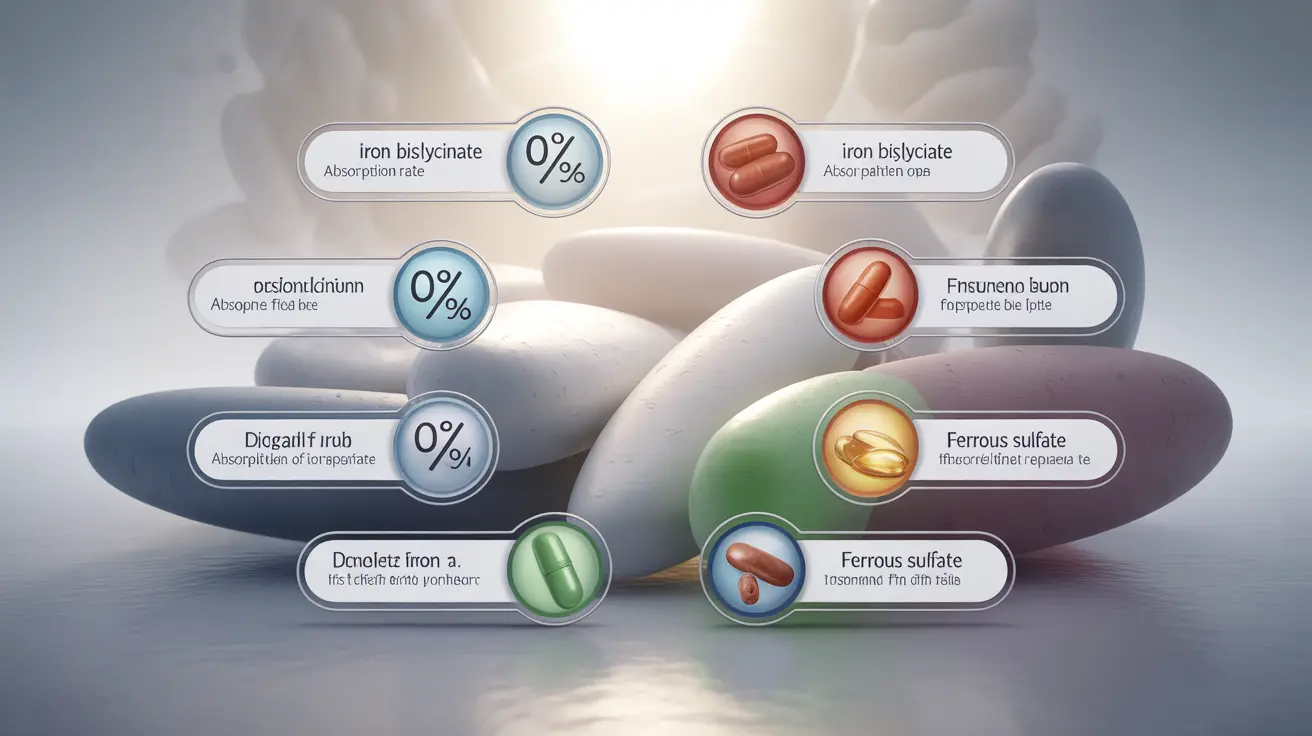Iron supplementation plays a crucial role in maintaining optimal health, especially for those dealing with iron deficiency or anemia. With numerous options available on the market, choosing the right iron supplement can feel overwhelming. This comprehensive guide will help you understand the different types of iron supplements and how to select the most effective one for your needs.
Understanding the key differences between iron supplement forms, their absorption rates, and potential side effects is essential for making an informed decision. Let's explore the most effective options and learn how to maximize their benefits while minimizing digestive discomfort.
Types of Iron Supplements and Their Benefits
Iron supplements come in several forms, each with distinct advantages and absorption characteristics:
Iron Bisglycinate
Iron bisglycinate, also known as ferrous bisglycinate, is one of the most well-tolerated forms of iron. This gentle formulation combines iron with glycine, creating a compound that's both highly absorbable and less likely to cause stomach upset. Research suggests it may be up to four times more bioavailable than traditional iron supplements.
Ferrous Sulfate
As the most commonly prescribed form of iron, ferrous sulfate is widely available and typically cost-effective. However, it's more likely to cause gastrointestinal side effects and may require careful timing with meals to optimize absorption.
Liquid and Alternative Formulations
For those who struggle with pills, liquid iron supplements and newer formulations like carbonyl iron provide alternative options. These forms can be particularly helpful for children or adults with swallowing difficulties.
Maximizing Iron Absorption
To get the most benefit from your iron supplement:
- Take iron supplements on an empty stomach when possible
- Pair with vitamin C-rich foods or supplements
- Avoid taking with calcium, dairy products, or coffee
- Space iron supplements apart from other medications
Quality and Safety Considerations
When selecting an iron supplement, consider these important factors:
Third-Party Testing
Look for supplements that have undergone independent quality testing by organizations like USP, NSF, or ConsumerLab. This verification ensures the product contains the stated amount of iron and is free from harmful contaminants.
Proper Dosage Guidelines
The recommended daily allowance varies based on age, gender, and specific health conditions. Most supplements contain between 15-65mg of elemental iron per serving. Always consult with a healthcare provider to determine your optimal dosage.
Frequently Asked Questions
What is the best iron supplement for improving iron levels with minimal stomach side effects?
Iron bisglycinate is often considered the best option for minimizing stomach side effects while maintaining high absorption rates. This form is gentle on the digestive system and less likely to cause constipation or nausea compared to traditional iron supplements.
How do iron bisglycinate supplements compare to ferrous sulfate in terms of absorption and tolerability?
Iron bisglycinate typically offers better absorption and tolerability than ferrous sulfate. While ferrous sulfate has good bioavailability, iron bisglycinate is generally better tolerated and may cause fewer gastrointestinal side effects, making it easier to maintain consistent supplementation.
Are there any iron supplements that are third-party tested for quality and safety?
Yes, several reputable brands offer third-party tested iron supplements. Look for products certified by USP, NSF International, or ConsumerLab for verified quality and purity standards. These certifications ensure the supplement contains the stated amount of iron and is free from contaminants.
What iron supplement options are available for people with sensitive stomachs or difficulty swallowing pills?
For sensitive stomachs, consider liquid iron supplements, iron bisglycinate, or slow-release formulations. Additionally, some manufacturers offer smaller tablets, chewable options, or liquid forms that are easier to take. These alternatives can provide effective supplementation without the challenges of traditional pills.
How much iron should I take daily, and what are the risks of taking too much iron supplementation?
The recommended daily iron intake varies by age, gender, and health status. Generally, adults need 8-18mg daily, with higher amounts needed during pregnancy or for treating deficiency. Taking too much iron can cause serious side effects including organ damage, so always follow healthcare provider recommendations and never exceed the prescribed dosage.




